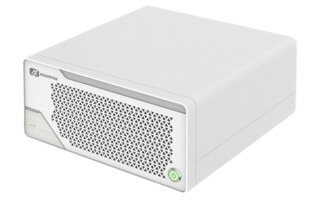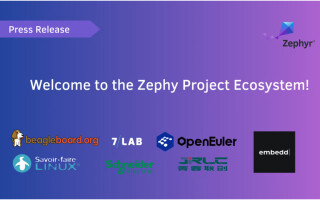Panel PCs Offer the Traits Needed for Industrial, Healthcare, Retail Applications
May 27, 2025
Blog

A panel PC is generally an all-in-one computing platform with an integrated touchscreen display, designed for industrial or commercial use. It combines a computer and monitor in a compact, durable enclosure, often built to withstand harsh environments and support human-machine interface (HMI) applications.
Panel PCs can be effectively used in an array of applications, including manufacturing, healthcare, retail, transportation, agriculture, logistics, and public services. They typically serve as user-friendly control panels in these applications, offering real-time monitoring and support. Their compact, rugged design also suits mobile and low-power consumption applications. For example, in logistics and warehousing, they can be used for inventory tracking, fleet management, and order processing, enhancing accuracy and operational speed. In other spaces, they benefit from a self-service perspective, improving the user experience and reducing staff workload.
Fit the Characteristics to the Application
Performance needs vary by application, but they must ensure stability, speed, and compatibility. If we focus on some key application spaces, take manufacturing first, the panel PC would require high performance with robust CPUs, ample RAM, and industrial-grade components to handle real-time data processing, machine control, and demanding HMI software in harsh environments. In healthcare, you’d need moderate to high performance for reliable operation of medical software, imaging systems, and secure data handling, ensuring accuracy and compliance with health regulations. And in retail, moderate performance is usually sufficient for tasks like point-of-sale (POS), inventory management, and customer interaction, prioritizing responsiveness and reliability over raw computing power.
Based on the intended application, panel PCs require different levels of ruggedness. For example, if the end application is in a manufacturing environment, high ruggedness would be needed due to exposure to dust, vibrations, moisture, and temperature extremes. Panel PCs should have front panel IP65 ratings, fanless designs, and shock resistance.

In healthcare, moderate ruggedness would be needed, with a focus on hygiene. PCs must withstand frequent cleaning with disinfectants, meet medical safety standards (like IEC 60601), and have antimicrobial coatings. And in retail, lower levels of ruggedness would suffice because the environments are more controlled. However, durability against frequent use, spills, and power fluctuations is still important.
Just the Right Amount of Security
The same questions should be addressed regarding security. In the manufacturing environment, security tends to focus on protecting IP and preventing unauthorized access to control systems. PCs should support network isolation and secure boot. In healthcare, higher levels of security are critical due to sensitive patient data. Compliance with regulations like HIPAA is essential. Features should include data encryption, user authentication, and secure OS environments. And in retail, moderate security is needed to protect customer information and transaction data. Systems should include point-of-sale encryption, user access control, and secure network connections.
Low power consumption in panel PCs is important even with AC power available to reduce energy costs, improve system efficiency, and minimize heat generation. Less heat helps extend hardware lifetimes and reduces the need for active cooling, which lowers maintenance needs and improves reliability while lowering costs. In critical settings like healthcare or industrial control, efficient power use also supports backup systems like UPS units, ensuring continued operation during outages.
ARM CPUs Make the Right Choice
Those panel PCs that are designed with Arm-based microprocessors are well-suited for industrial, healthcare, and retail applications due to their efficiency, flexibility, and cost-effectiveness. In industrial environments, Arm-based panels excel with fanless, low-power designs that reduce heat and improve reliability in harsh conditions. Their energy efficiency allows for deployment in remote or embedded systems where power conservation is critical. They also support the RTOSs and industrial protocols needed for machine control and automation.
In healthcare, ARM processors offer strong performance with low thermal output, ensuring quiet, hygienic, and compact devices. Their ability to support secure, lightweight OSs like Linux or Android enables rapid development of medical interfaces while maintaining compliance with healthcare data security standards.
And in retail, ARM-based panels provide responsive, cost-effective solutions for POS terminals, kiosks, and digital signage. Their efficient design extends device lifespan and reduces energy costs, while built-in wireless capabilities support modern mobile and contactless transactions.
MiTAC’s Panel PCs
When it comes to selecting a panel for these applications, you’d make a smart choice with the MiTAC P70-118T and P100-118T panel PCs, which are well-suited due to their rugged design, efficient performance, and flexible features. Powered by Arm-based processors, both models deliver low power consumption and fanless operation, which enhances reliability, reduces maintenance, and minimizes heat, all critical features for environments where uptime is essential. Their solid-state design ensures durability in vibration-prone industrial settings and helps maintain hygienic conditions in healthcare by eliminating moving parts that trap dust or contaminants. Other features include a wide input voltage level, from 12 to 24 V, and Yocto 4.0 BSP support, along with an open-frame chassis.
In industrial environments, the P70-118T and P100-118T support wide operating temperatures and resist dust and moisture, thanks to their IP65-rated front panels. Their multiple I/O options (USB, COM, LAN, GPIO) make them ideal for machine interfaces, control systems, and automation tasks.
In healthcare, these panel PCs enable secure, real-time access to patient data with support for Linux and Android, offering flexibility for custom applications. Their sleek, easy-to-clean surfaces support infection control protocols, and quiet operation ensures that they don't disrupt care environments.

And in retail, their compact form factor, touchscreen interfaces, and wireless connectivity options make them excellent choices for kiosks, POS systems, and digital signage. They offer reliable performance in high-traffic environments while keeping energy consumption low, reducing operational costs.
The P70-118T is equipped with an NXP i.MX8M dual- and quad-core processor, a 7-in. PCAP touch-panel display with multi-touch support, and a 7-in. WXGA LCD with 400 nits of brightness. The LED backlight lifetime is rated at 30,000 hrs. Up to 4 Gbytes of LPDDR4 memory is possible, and mass storage consists of one Micro SD card slot and an onboard eMMC with options ranging up to 32 Gbytes. External I/O consists of one RJ-45 1GbE LAN port, two USB3.2 Gen1 Type A interfaces, and one RS-232/422/485 connection. The P100-118T boasts similar features, but with a larger display, up to 10.1 in.
MiTAC Is the Right Choice
MiTAC is a trusted vendor in the embedded community due to its long-standing experience, strong engineering capabilities, and commitment to quality. With decades in the industrial computing market, MiTAC consistently delivers reliable, high-performance embedded solutions tailored for industrial, healthcare, retail, and other IoT applications. The company’s products are built with rigorous quality control, ensuring durability and stability in demanding environments.
MiTAC also offers long lifecycle support, which is critical for embedded deployments. In addition, their flexible design and customization services allow OEMs and system integrators to meet specific application needs. Backed by global support and a proven track record, MiTAC stands out as a dependable partner in embedded computing. Contact the company today to learn more.




